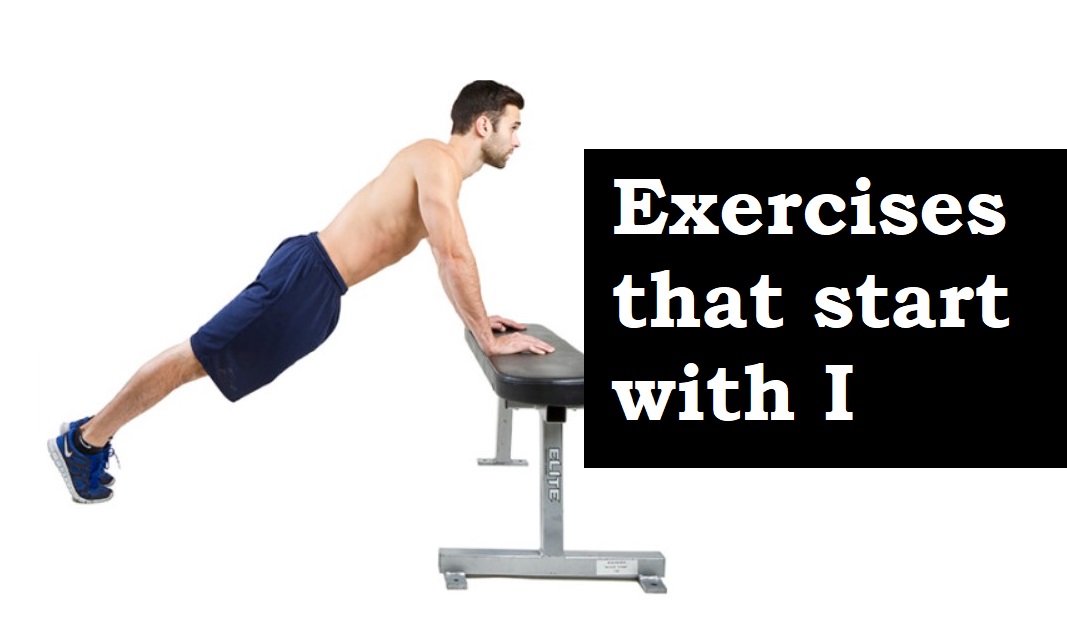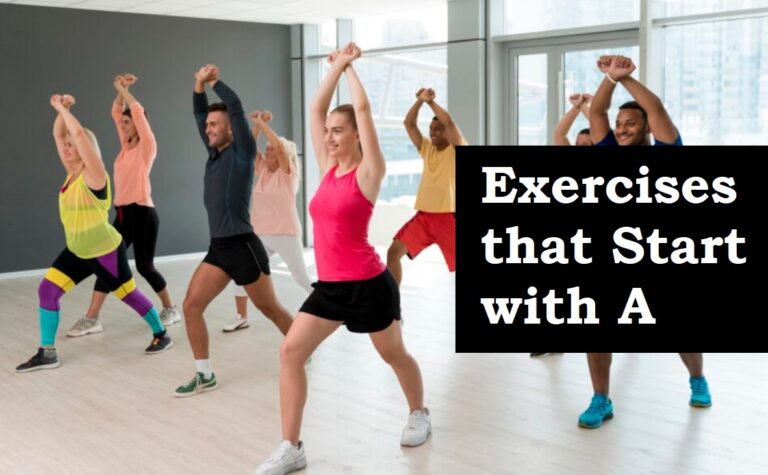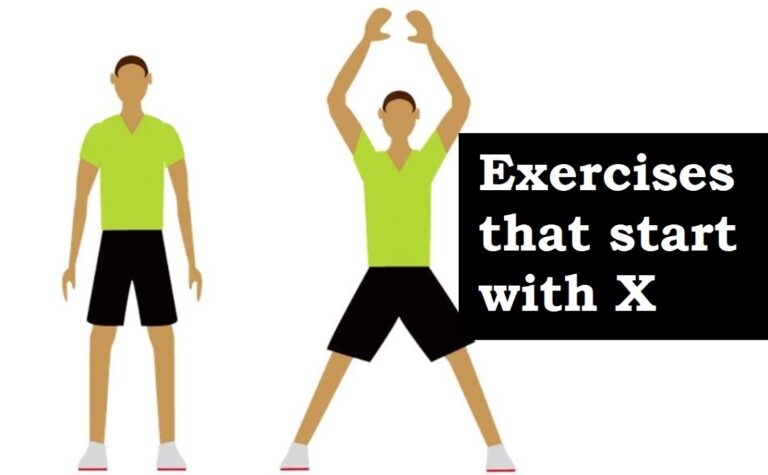7 Exercises that start with I (How to, Muscles Worked, Calorie Burn)
A organized fitness routine is essential for improving overall strength, flexibility, and cardiovascular fitness. Whether you’re a fitness enthusiast or just starting on your fitness journey, including exercises that target different muscle groups can lead to better results and a more well-rounded workout experience.
Lets know some invigorating exercises that start with the letter “I”
1. Incline Push-Ups
How To: Incline push-ups are a modified version of the traditional push-up that is suitable for beginners or individuals working on building upper body strength.
Place your hands on a sturdy elevated surface, such as a bench or a stable chair, with your palms facing down.
Walk your feet back until your body is in a straight line. Lower your chest towards the surface by bending your elbows, and then push back up to the starting position.
Intensity Level: Incline push-ups are suitable for beginners and can be adjusted by changing the height of the surface. Lower surfaces provide more assistance, while higher surfaces increase the difficulty.
Muscles Worked: Incline push-ups primarily target the chest, shoulders, and triceps.
Average Calorie Burn: A 15-minute session of incline push-ups can burn approximately 70 to 100 calories.
2. Inverted Rows
How To: Inverted rows, also known as body rows, are effective for building upper body and back strength. Set up a barbell at waist height or use a TRX suspension trainer.
Hold the bar or handles with an overhand grip and lean back with your body in a straight line. Pull your chest up towards the bar or handles, squeezing your shoulder blades together.
Lower yourself back down with control.
Intensity Level: Inverted rows can be adjusted by controlling the difficulty of the exercise. Beginners can start with a higher bar or use a TRX suspension trainer to make the exercise easier.
Muscles Worked: Inverted rows primarily target the muscles of the upper back, including the latissimus dorsi and rhomboids, as well as the biceps and rear shoulders.
Average Calorie Burn: A 15-minute session of inverted rows can burn approximately 70 to 100 calories.
3. Isometric Bicep Curls
How To: Isometric bicep curls involve holding a static bicep curl position for an extended period. Hold a dumbbell in each hand with your arms at your sides and palms facing forward.
Curl the dumbbells up towards your shoulders, creating a 90-degree angle at the elbow. Hold this position for the desired duration.
Intensity Level: The intensity of isometric bicep curls can be adjusted by varying the duration of the hold and the weight of the dumbbells. Beginners can start with lighter weights and shorter holds.
Muscles Worked: Isometric bicep curls target the biceps and forearms.
Average Calorie Burn: Isometric bicep curls are static exercises and may not contribute significantly to calorie burn. However, they play a role in building bicep strength and endurance.
4. Inchworms Exercise
How To: Inchworms are a dynamic exercise that engages the core, shoulders, and hamstrings. Stand with your feet hip-width apart. Lower your body by bending your knees and pushing your hips back.
Place your hands on the floor in front of your feet and walk them forward until you are in a plank position.
Then, walk your feet towards your hands, keeping your legs as straight as possible. Repeat the movement for the desired number of repetitions.
Intensity Level: Inchworms are suitable for all fitness levels and can be performed at a controlled pace.
Muscles Worked: Inchworms primarily target the core, shoulders, and hamstrings.
Average Calorie Burn: A 15-minute session of inchworms can burn approximately 100 to 150 calories.
5. Incline Dumbbell Flyes
How To: Incline dumbbell flyes are excellent for targeting the chest and shoulders. Set an incline bench at a 45-degree angle.
Hold a dumbbell in each hand with your arms extended above your chest and palms facing inward.
Lower the dumbbells out to the sides in a wide arc until they are level with your shoulders. Squeeze your chest muscles and bring the dumbbells back up to the starting position.
Intensity Level: Incline dumbbell flyes can be adjusted by controlling the weight of the dumbbells. Beginners can start with lighter weights and focus on mastering proper form.
Muscles Worked: Incline dumbbell flyes primarily target the chest muscles, with secondary engagement of the shoulders and triceps.
Average Calorie Burn: A 15-minute session of incline dumbbell flyes can burn approximately 70 to 100 calories.
6. Internal and External Rotations
How To: Internal and external rotations are essential exercises for shoulder stability and injury prevention. For internal rotations, stand with your arms bent at 90 degrees and your elbows close to your sides.
Hold a resistance band or cable handle in each hand and rotate your forearms in towards your belly button, keeping your elbows stationary.
For external rotations, perform the same movement but rotate your forearms away from your belly button.
Intensity Level: Internal and external rotations can be adjusted by controlling the tension of the resistance band or the weight of the cable machine. Beginners can start with lighter resistance and gradually increase as they become more comfortable.
Muscles Worked: Internal and external rotations primarily target the rotator cuff muscles, which are essential for shoulder stability.
Average Calorie Burn: A 15-minute session of internal and external rotations can burn approximately 50 to 70 calories.
7. Interval Training
How To: Interval training involves alternating between short bursts of high-intensity exercise and periods of rest or lower-intensity exercise.
This can be applied to various forms of cardiovascular workouts, such as running, cycling, or jumping rope.
For example, you can sprint for 30 seconds and then walk or jog for 60 seconds to recover before the next sprint.
Intensity Level: Interval training is a high-intensity workout that can be adapted to different fitness levels. Beginners can start with shorter intervals and gradually increase the intensity and duration as they become fitter.
Muscles Worked: Interval training primarily targets the cardiovascular system and helps improve overall cardiovascular fitness.
Average Calorie Burn: A 15-minute session of interval training can burn approximately 150 to 200 calories, depending on the intensity and duration of the workout.
Conclusion
Exercises that start with the letter “I” into your fitness routine can elevate your workouts and help you achieve your health and fitness goals. From modified push-ups like incline push-ups to strength exercises like inverted rows and isometric bicep curls, these exercises offer a well-rounded approach to improving overall strength, cardiovascular fitness, and core stability.







